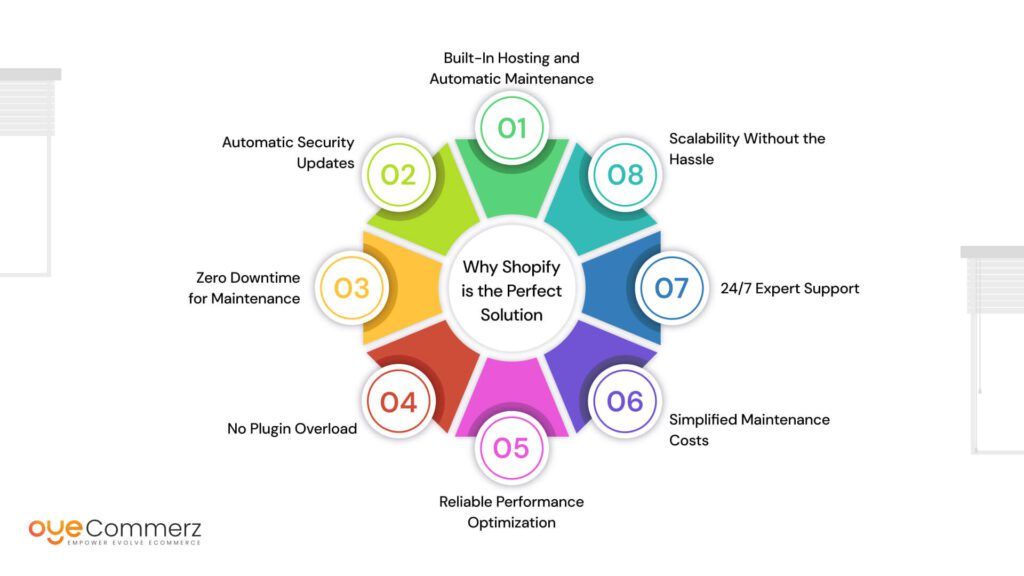In the ever-evolving world of online retail, selecting the optimal system is essential for your company’s growth. If you’re presently using WordPress and thinking about a migration to Shopify, you’re not alone. Many businesses are making this transition to utilize Shopify’s comprehensive tools, user-friendliness, and expandability. This guide will take you through the steps of migrating from WordPress to Shopify smoothly, guaranteeing that you realize your eCommerce potential.
Why Migrate from WordPress to this platform?
Prior to starting the migration process, it’s crucial to realize why this change can be beneficial for your online store:
User-Friendly Interface: Shopify offers an straightforward system that streamlines store handling, allowing for non-technical users.
Growth Potential: As your business develops, Shopify can handle greater traffic and transactions without affecting performance.
All-in-One Solutions: Shopify includes pre-installed features for SEO, analytics, payment management, and much more, reducing the requirement for several plugins.
Enhanced Security: With Shopify, you benefit from advanced security measures that secure confidential customer data.
Steps for a Effortless Migration
Migrating your online store from WP to Shopify requires key phases.
Here’s how to facilitate a smooth transition:
Prepare Your Migration Strategy
Kick-off by drafting your migration plan. Pinpoint which elements of your existing site you want to migrate, such as:
Product data
User details
Transaction records
Posts
Select the Best Migration Option
Considering your needs, choose a migration package that fits your business. Professional services offers several plans:
Starter Package: Suitable for small stores with minimal products.
Standard Migration Package: Appropriate for medium-sized businesses with intermediate needs.
Premium Migration Package: Perfect Shopify customer data tools for larger stores demanding extensive customization.
Save Your Data
Prior to beginning the migration, ensure that you have a full archive of your WordPress site. This task is crucial in the event anything goes off track during the transfer.
Retrieve Your Information from WordPress
Use tools or alternative solutions to export critical information from your WordPress site:
Products
Clients
Sales records
Blog posts
Upload Information into Shopify
When you have your data retrieved, utilize Shopify’s import tools or third-party apps to migrate your data into your Shopify store. Ensure that all content is properly structured and aligned.
Customize Your Shopify Store
Following uploading content, customize your Shopify store’s theme to match with your business goals. Look into working with a developer if you want detailed customization.
Set Up Payment Gateways and Shipping Options
Configure transaction methods and delivery choices in Shopify to create a user-friendly transaction experience for customers.
Adopt SEO Standards
To keep your online visibility during the migration:
Implement 301 URL mappings from old URLs to migrated ones.
Update descriptions.
Enhance media and text for search engines.
Review Your Updated Shop
Prior to launching, completely review your migrated site. Identify any discrepancies, checkout failures, or missing data.
Launch Your Store
After everything is in ready, it’s the opportunity to publish! Share the change to your clients and encourage them to explore the enhanced offerings of your Shopify store.
Post-Migration Guidance
Following releasing your updated store, ongoing help is important. Explore engaging professionals hire Shopify developers who can help with:
Troubleshooting
Promotional campaigns
Improvement strategies
Conclusion
Migrating from WordPress to Shopify can be a transformative decision for your online retail. By following this guide and utilizing tools like those offered by industry leaders, you can ensure a seamless transition that enhances your online presence. Adapt to the opportunity and realize the full capabilities of Shopify today!
